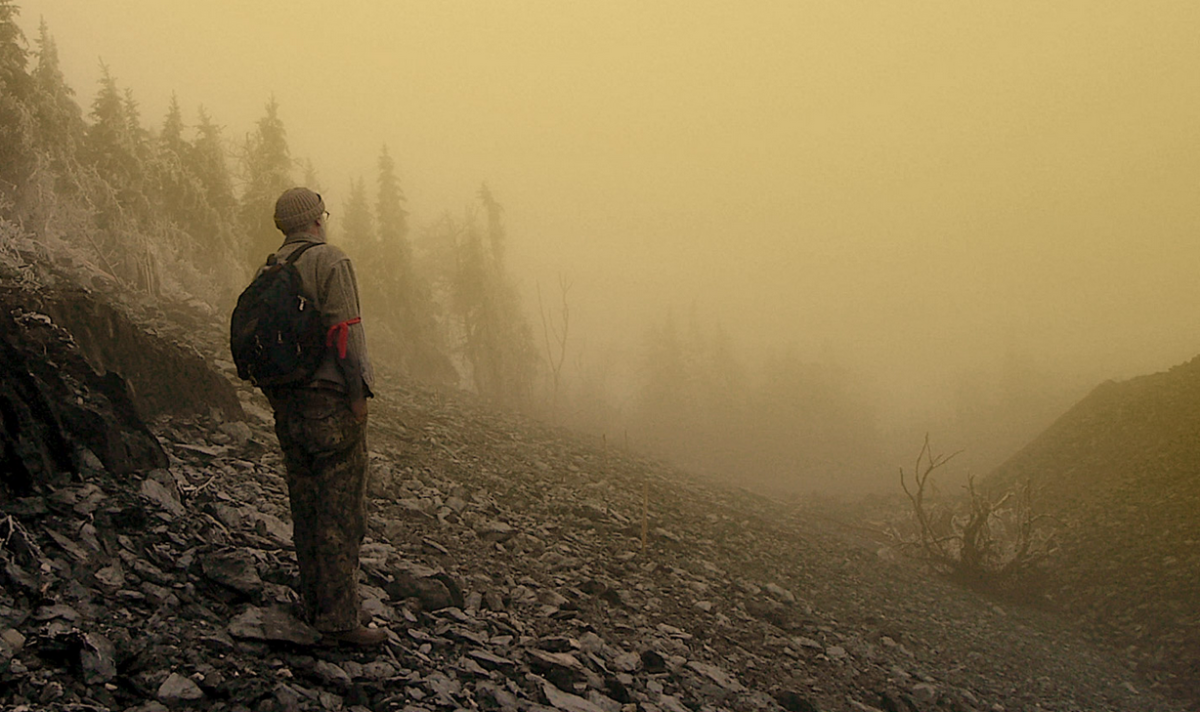From pv magazine USA
“We are losing the battle to stop climate change because we are following environmental leaders … who’ve sold out the green movement to wealthy interests and corporate America,” claims filmmaker Jeff Gibbs.
Michael Moore – the man behind Bowling for Columbine and Fahrenheit 9/11 – served as the executive producer of Gibbs' new documentary, Planet of the Humans. Gibbs, a collaborator with Moore and self-proclaimed lifelong environmentalist, is the film's writer, producer and director.
Saved by solar?
The promotional copy for the film says it “takes a harsh look at how the environmental movement has lost the battle through well-meaning but disastrous choices, including the belief that solar panels and windmills would save us, and by giving in to the corporate interests of Wall Street.” Its producers suggest that “no amount of batteries are going to save us.”
“We have ignored the warnings, and instead all sorts of so-called leaders have steered us away from the real solutions that might save us,” says Moore, who wants to launch “a new environmental uprising.” The filmmaker suggests that the environmental movement’s “techno-fixes” are “too little, too late.”
The movie, written by an avowed environmentalist, is a screed against solar power, wind power, biomass, hydrogen fuel, ethanol, electric vehicles, and a case for the general unsuitability of renewables as a replacement for fossil fuels.
The film is also a screed against Al Gore, Richard Branson, Vinod Khosla, Sierra Club, Goldman Sachs, Bill McKibben, and Obama’s green energy efforts — for their profit motives and mixed allegiances. The film claims that “the takeover of the environmental movement by capitalism is now complete” and that control of the environmental movement must be taken back from the billionaires.
The film’s narrator and author reveals that solar and wind farms require land on which to operate, that solar panels don’t perform well without sunlight, and that building wind turbine arrays requires substantial amounts of concrete, steel and fiberglass. Additionally, the silicon used in most solar panels requires enormous amounts of power to produce. All of this is true.
The film offers a succession of talking heads, all bemoaning renewables — although there is not a grid scientist or energy expert among them. “Seeking technological fixes is just going to lead us to another level of catastrophe,” claims anthropologist Nina Jablonski. Author Richard Heinberg, meanwhile, says he is “getting the uneasy feeling that green energy is not going to save us.”
The producer of the film, Ozzie Zehners, says that it’s a dangerous illusion to believe “that solar and wind are somewhat different than fossil fuels.” The film claims that solar relies on “the most toxic and most industrial processes ever created,” and equates grading land for a wind farm with mountaintop coal removal.
Getting PV all wrong
It’s difficult to take the film seriously on any topic when it botches the solar portion so thoroughly. Although the film was released in 2020, the solar industry it examines, whether through incompetence or venality, is from somewhere back in 2009.
The film reports on a solar installation in Michigan with PV panels rated at “just under 8%” conversion efficiency. It’s difficult to identify the brand of panel in the film (Abound?) — but that efficiency is from another solar era.
The film pillories the Ivanpah thermal solar plant and SEGS, the original solar thermal power plant in Daggett, California, but fails to distinguish between overachieving photovoltaic solar and laggard thermal solar.
The film ignores the plunging cost of solar and its steadily increasing price advantage over coal and natural gas — as well as the similar trajectory of battery storage. It is plain wrong on renewables not displacing fossil fuels but it might be right in its excoriation of ethanol and biofuels.
Population growth
If the filmmakers don’t believe renewables such as wind and solar are the answer, what do they believe?
Are they oil and gas supporters? It’s not clear. Nuclear proponents? Not clear, although Mike Shellenberger, nuclear advocate and renewables detractor, endorses the film.
The filmmakers don’t offer a plan to alter our energy course, but they certainly make population a theme.
They quote Heiger in the film: “There are too many human beings using too much, too fast.” Jablonski, meanwhile, calls population growth “the herd of elephants in the room.” Another interviewed anthropologist speaks of population crashes.
“Can a single species that’s come to dominate the entire planet be smart enough to voluntarily limit its own presence? Removed from the debate is the only thing that might save us: getting a grip on our out-of-control human presence and consumption,” they say “Why is this not the issue? Because that would be bad for profits, bad for business.”
The film is long on criticism but offers no solutions other than a vague non-capitalist pastoral alternative, along with a bleak, harrowing final scene.
This content is protected by copyright and may not be reused. If you want to cooperate with us and would like to reuse some of our content, please contact: editors@pv-magazine.com.




Albeit acknowledging the film’s many embellishments, on the basic premise I find Jeff Gibbs’ film spot on. Even with the significant improvements in green technologies which Gibbs unfortunately does not acknowledge, no amount of these technologies can overcome the order of magnitude more waste human kind currently excrements that our planet Earth can’t recycle This fact the major environmental groups, e.g. Sierra Club, is green-washing as if to not upset the current political establishment and economic order. The Only solution is for people is to massively plant trees, proceed to massively reduce their energy consumption (i.e. instead of alternative energy, we need to focus on the alternatives to energy), as well as quit buying non-essential material goods (particularly stuff from China). I believe what Gibbs is getting at is that the real issue is with the current globalist culture based on lazes faire economics. That is what the leaders of the so called environmental movement are embedded with the current political/economic structure are so upset with. Truth hurts.
A few thoughts to add:
– The PV array in Michigan used Uni-Solar (division of ECD) a-Si on steel modules. The company is long out of business—the approach was never economically viable, and a-Si is the worst of the PV technologies—and the footage was rather antiquated. I agree with Eric’s assessment, as far as PV the film is missing out on many fronts. Using outdated data is just one example.
– It is striking to note that life-cycle analysis is not even mentioned. Studies from several independent institutes shows beyond doubt that the CO2 and energy footprint of thin-film (CdTe & CIGS) PV modules is unbeatable, the energy pay back time ≤ 1 year. c-Si is about 2x. Hence, the arguments made in the film just don’t hold up. PV is an overall has a significant impact on reducing CO2 emissions. But of course, the raw materials need to be mined and there is an environmental footprint that is larger than zero. But compared to fossil and nuclear fuels PV is far superior.
– The film also fails to muster the ability to differentiate solar thermal from photovoltaics. Throwing it all into the same pot of “solar” is highly misleading. And interestingly, the film completely misses the mark on the 2nd largest energy consumer in residential homes—domestic hot water. This is an area where solar thermal is unbeatably cheap and has energy pay back times of much less than 1 year. Even countries like Austria have realized this and mandate solar thermal on all new homes. This should be enacted around the globe—including all models—and hopefully PV will soon be mandated as well.
It is ironic that a film that has a serious message suffers from poor research and vetting of data. This undermines the credibility. One would hope that Jeff Gibbs realizes his serious mistakes, apologizes and issues a corrected, fact checked version.
I wonder why the disaster known as the false VW gas mileage claim wasn’t explored in the film? For one thing the VW disaster highlights an as of yet to be realized fact from the Fossil Fuel cheerleaders. The internal Combustion Engine hasn’t changed its efficiency in the past 50 years or more and the only way to go with a better mileage is to go with EV’s. The ICE is at a point where the horse was in the last century. There will not be any improvements in the efficiency and any claim that does so will have to be scrutinized and proven false as was the VW fiasco.
And PLEASE!!! Driving smaller cars may mean using less fuel but that isn’t an improvement in efficiencies.